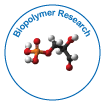当社グループは 3,000 以上の世界的なカンファレンスシリーズ 米国、ヨーロッパ、世界中で毎年イベントが開催されます。 1,000 のより科学的な学会からの支援を受けたアジア および 700 以上の オープン アクセスを発行ジャーナルには 50,000 人以上の著名人が掲載されており、科学者が編集委員として名高い
。オープンアクセスジャーナルはより多くの読者と引用を獲得
700 ジャーナル と 15,000,000 人の読者 各ジャーナルは 25,000 人以上の読者を獲得
抽象的な
Biopolymer-Based Nanoparticles for Targeted Drug Delivery: Advancements in Precision Medicine
Kirty T
Targeted drug delivery systems have emerged as a promising strategy to enhance the efficacy and minimize the side effects of therapeutic agents. Biopolymer-based nanoparticles offer a versatile platform for the controlled and targeted delivery of drugs to specific sites within the body. This abstract highlights the research and development of biopolymer-based nanoparticles for targeted drug delivery, focusing on their potential in advancing precision medicine. The investigation revolves around various types of biopolymers, including chitosan, alginate, gelatin, and poly(lacticco- glycolic acid) (PLGA), which exhibit favorable biocompatibility, biodegradability, and tunable physicochemical properties. These biopolymer matrices are engineered to encapsulate a wide range of therapeutic agents, such as small molecules, proteins, peptides, and nucleic acids, enabling their controlled release and site-specific delivery. The synthesis and functionalization of biopolymer-based nanoparticles are explored, with a particular emphasis on their ability to enhance drug stability, prolong circulation time, and improve cellular uptake. Surface modification strategies, including the conjugation of targeting ligands and stimuli-responsive coatings, are investigated to achieve selective drug delivery to specific cells or tissues. The evaluation of biopolymer-based nanoparticles encompasses their physicochemical characterization, drug loading efficiency, release kinetics, and cytotoxicity. Furthermore, in vitro and in vivo studies are conducted to assess the therapeutic efficacy, biodistribution, and pharmacokinetics of these nanoparticles in disease models. This abstract concludes by emphasizing the potential of biopolymer-based nanoparticles as a versatile and effective platform for targeted drug delivery. The ability to achieve site-specific drug release, minimize off-target effects, and enhance therapeutic outcomes has significant implications for precision medicine. The challenges and future prospects for optimizing biopolymer-based nanoparticles in terms of stability, scalability, and clinical translation are discussed, with the aim of accelerating their integration into clinical practice. The development and utilization of biopolymer-based nanoparticles hold great promise for revolutionizing drug delivery approaches and improving patient outcomes in precision medicine applications.

 English
English  Spanish
Spanish  Chinese
Chinese  Russian
Russian  German
German  French
French  Portuguese
Portuguese  Hindi
Hindi